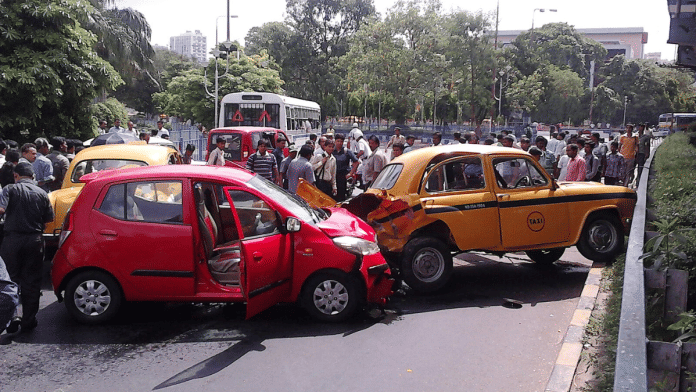Thank you dear subscribers, we are overwhelmed with your response.
Your Turn is a unique section from ThePrint featuring points of view from its subscribers. If you are a subscriber, have a point of view, please send it to us. If not, do subscribe here: https://theprint.in/subscribe/
Every time an accident occurs, apart from sorrow in the nation and victims’ families, there is a loss of national resources, namely life and property. While we attribute the luck factor to the occurrence of an accident, we cannot ignore the fact that the accidents are indicators of system inefficiency. The system’s inefficiency gets transferred to nameless people and their relatives.
After an accident occurs (road, rail, air, buildings, mining, etc.), the usual reactions take place. The actions include face-saving statements to draw political mileage, asking for resignations, and blaming the government. To assuage public opinion, an inquiry is often ordered, and ex-gratia payments or visits to victims’ houses take place. Accident investigations and follow-up actions are rarely known.
Accidents can profoundly impact, various aspects of society. Some of the key areas where accidents can have a significant impact are healthcare, human capital, psychological impact and nonavailability of resources. Accidents can lead to substantial economic losses due to property damage, medical expenses, and lost productivity. The cost of repairing infrastructure, vehicles, and other assets can strain public and private finances.
Each modern innovation introduced has a deep-rooted safety impact. Apart from process and system safety, there is a need to study the long-term effects on the environment
India is transforming at a massive speed. The transformation plan includes the construction of high-speed roads, high-rise buildings, ports, the proposed bullet train, airlines, mega industrial/power plants, and industries (primary, secondary, and tertiary).
We have the manpower who have developed the safety systems and, at the same time, operationalized and maintained the systems. For safety systems to work effectively, there is a need to think of accident prevention, accident investigation, and setting of standards for operation.
I recommend the formation of a National Safety Board. The board will oversee the safety aspects of safety services existing in the country. The Board should have quasi-judicial powers and have separate wings for each of the roles. The charter of duties should lay down the safety standards, enforce standards, inspect and investigate, and oversee research and development. The National Safety Board must cover various aspects of safety in an integrated manner. While the role of the investigation wing is straightforward, the enforcement part. The talent pool is available with various agencies. The experience needs to be used cohesively.
The organization needs to be impartial with expertise in the investigation. Knowledge and experience of the interoperability of equipment will help in developing parameters for various roles and climatic conditions in the country. The most important role of organizing the enforcement of follow-up by action taken reports.
My intent is only to create a thought process.
These pieces are being published as they have been received – they have not been edited/fact-checked by ThePrint.


